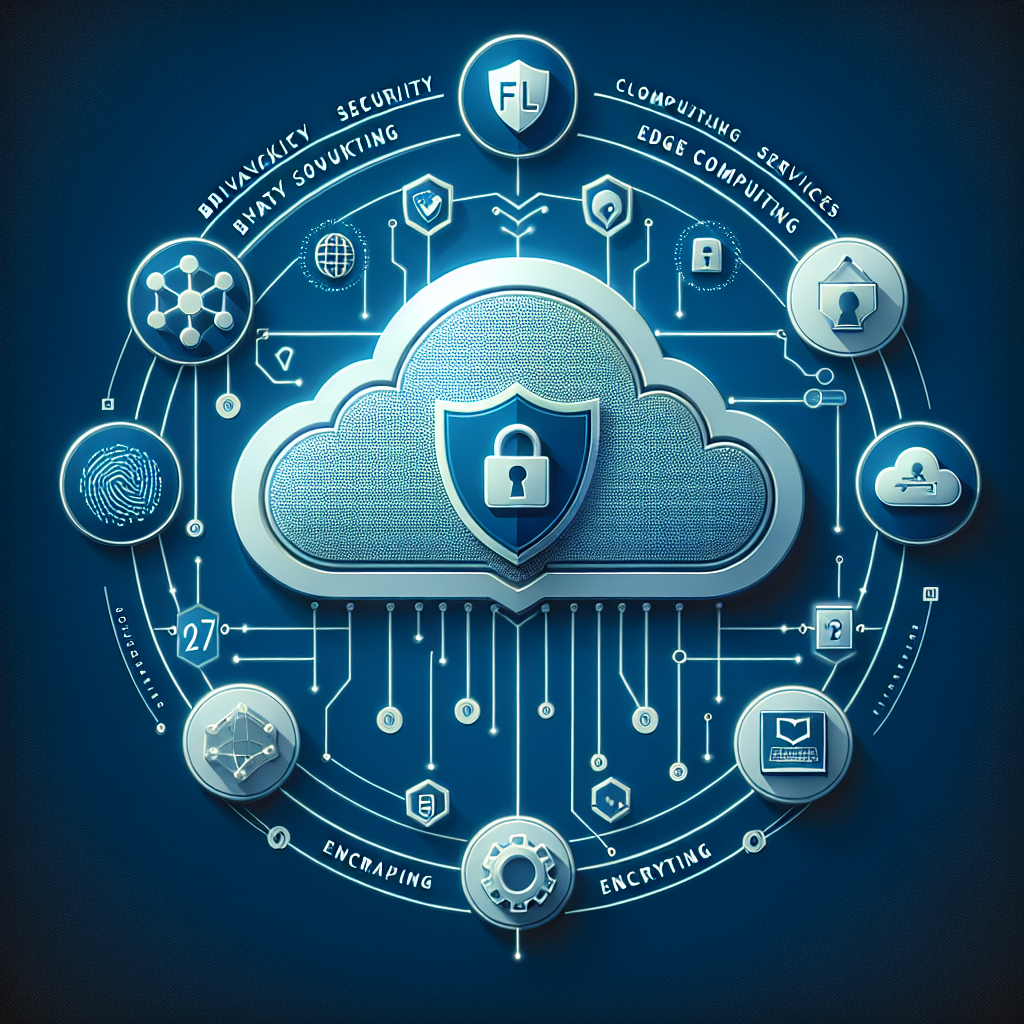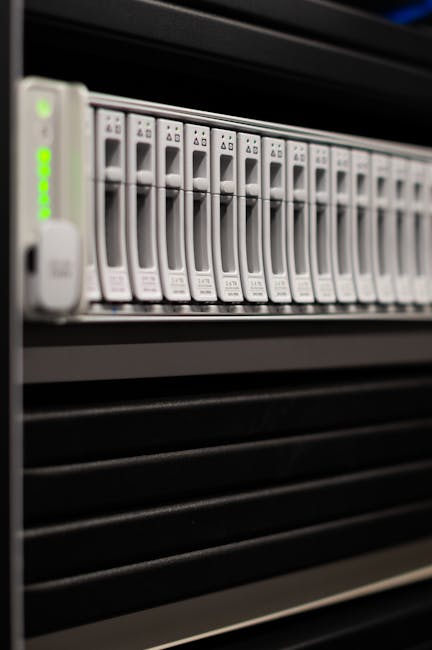Unlock encrypted content
Please enter your SSCE key to initiate on-the-fly decryption.
Decryption key: (Click cancel if you don't have the key)
Copied link to clipboard.
This feature is unavailable for free accounts. Upgrade now and enjoy all Premium benefits.
Go Premium!
This feature is unavailable for free accounts. Upgrade now and enjoy all Premium benefits.
Go Premium!
Please open this page in browser ( Google Chrome or Safari ) to use this feature.
Open In Browser
Exploring the Future of Data Management: Space Data Storage, Li-Fi, and Cloud Computing Services.
Random related video for this blog.
Copied share link to clipboard.
The digital landscape is rapidly evolving, with advancements in technology reshaping how we manage and store data. This article delves into various innovative concepts, including space data storage, Li-Fi (Light Fidelity), cloud storage, and edge computing, while also examining big data storage solutions, encryption protocols, and emerging technologies like Lidar and biohacking.
Understanding Space Data Storage
Space data storage is an emerging concept that refers to the potential of utilizing outer space for data storage solutions. The rationale behind this idea is the vast, untapped resources available in space, which could be harnessed to create efficient and scalable data storage options. Companies like NASA and private enterprises are exploring the feasibility of deploying data centers in orbit, where the benefits include lower energy costs and enhanced data security. A notable example is the potential use of satellite technology for data storage. Satellites can store and transmit data back to Earth, offering a solution for remote areas with limited internet access. This method could revolutionize data management by providing a reliable storage alternative that is less susceptible to natural disasters, which can disrupt terrestrial data centers. Moreover, the environmental benefits of space data storage cannot be overlooked. By moving data storage operations off-planet, we can reduce the carbon footprint associated with traditional data centers. This innovative approach aligns with global sustainability goals, making it a compelling option for companies seeking to minimize their environmental impact while enhancing their data management capabilities.Li-Fi: The Future of Data Transfer
Li-Fi (Light Fidelity) represents a groundbreaking advancement in data transfer technology, utilizing visible light communication to transmit data at unprecedented speeds. Unlike traditional Wi-Fi, which relies on radio waves, Li-Fi uses LED lights to send and receive information. This technology can potentially achieve data transfer rates of up to 100 Gbps, far surpassing currentWi-Fi capabilities. The applications of Li-Fi are vast, particularly in environments where radio interference is a concern, such as hospitals or aircraft. For instance, in a hospital setting, Li-Fi can facilitate seamless data transfer between devices without the risk of interference with sensitive medical equipment. This capability enhances patient care and operational efficiency. Furthermore, as smart cities evolve, Li-Fi can play a crucial role in connecting various devices and systems. Streetlights equipped with Li-Fi technology can provide high-speed internet access to residents while also collecting data for urban planning and management. This dual functionality of infrastructure not only improves connectivity but also fosters innovation in urban development.
Cloud Storage Providers and Data Security
Cloud storage providers have become essential for businesses and individuals alike, offering scalable solutions for data management. Among the notable players in this field is FileLu, a cloud storage provider that emphasizes privacy and data integrity. With plans ranging from 51 GB to 500 TB, FileLu caters to a diverse clientele, ensuring that users can choose a plan that fits their needs and budget. Security is a paramount concern in cloud storage, and FileLu addresses this by implementing SSL encryption for data transfers and ensuring that files are encrypted at the data center. This level of security is crucial, particularly for businesses handling sensitive information. Users can also enable Secure-Solo-Cipher Encryption (SSCE) for an added layer of protection, ensuring that their data remains private and secure. Moreover, FileLu's large file transfer capabilities allow users to send files up to 10 GB for free, with no size limit for premium users. This flexibility is particularly beneficial for businesses that require efficient data sharing solutions. The ability to upload files seamlessly and securely enhances productivity and collaboration, making FileLu a preferred choice for many organizations.Big Data Storage Solutions
As businesses increasingly rely on data-driven insights, the demand for big data storage solutions has surged. These solutions are designed to handle vast amounts of data generated from various sources, including social media, IoT devices, and enterprise applications. Effective big data storage must not only accommodate large volumes of data but also ensure quick access and analysis. One of the key challenges in big data storage is scalability. Solutions must be able to grow with the organization’s needs without compromising performance. FileLu’s cloud storage services provide a scalable framework that allows businesses to expand their storage capacity as needed, ensuring they can keep pace with data growth. Additionally, effective big data storage solutions should integrate with analytics tools to enable real-time data analysis. By leveraging cloud computing services, organizations can harness the power of advanced analytics to glean insights from their data, driving informed decision-making and strategic planning.The Role of Edge Computing
Edge computing is a paradigm that brings computation and data storage closer to the location where it is needed, rather than relying on a centralized data center. This approach is particularly beneficial for applications requiring low latency and real-time processing, such as autonomous vehicles and smart manufacturing. By processing data at the edge, organizations can reduce the time it takes to analyze and respond to information, enhancing operational efficiency. For example, in a manufacturing setting, edge computing can facilitate real-time monitoring of machinery, allowing for predictive maintenance and minimizing downtime. Moreover, edge computing complements big data storage solutions by enabling data to be processed locally before being sent to the cloud. This reduces bandwidth usage and ensures that only relevant data is transmitted, optimizing storage and analysis processes.Files Encrypted at Data Centers
Data security is of utmost importance in today’s digital landscape, and the practice of encrypting files at data centers is a critical component of a comprehensive security strategy. By ensuring that files are encrypted both in transit and at rest, organizations can protect sensitive information from unauthorized access and breaches. FileLu exemplifies this commitment to security by encrypting files at their data center, providing users with peace of mind that their data is safeguarded. This practice is particularly vital for industries that handle sensitive information, such as healthcare and finance, where data breaches can have severe consequences. Furthermore, encryption at data centers enhances compliance with data protection regulations, such as GDPR and HIPAA. Organizations that prioritize data security are not only protecting their assets but also building trust with their clients and stakeholders.Lidar Technology in Data Management
Lidar (Light Detection and Ranging) technology has gained prominence in various fields, including autonomous vehicles, agriculture, and environmental monitoring. By using laser pulses to measure distances, Lidar can create detailed 3D maps of the environment, providing valuable data for analysis and decision-making. In data management, Lidar technology can be utilized to enhance data collection processes. For instance, in urban planning, Lidar can capture accurate topographical data, enabling city planners to make informed decisions about infrastructure development. This technology can also aid in environmental monitoring by providing insights into changes in land use and vegetation. Moreover, the integration of Lidar with cloud computing services can facilitate real-time data sharing and analysis. By storing Lidar data in the cloud, organizations can collaborate more effectively and access critical information from anywhere, enhancing their operational capabilities.The Intersection of Biohacking and Data Management
Biohacking, the practice of using science and technology to enhance biological functions, is increasingly intersecting with data management. As individuals seek to optimize their health and performance, the data generated from wearable devices and health applications presents a wealth of information for analysis. Organizations can leverage this data to develop personalized health solutions, enhancing the effectiveness of wellness programs and interventions. For instance, fitness companies can analyze data from wearable devices to provide tailored workout plans for users, optimizing their fitness journeys. Furthermore, biohacking raises important questions about data privacy and security. As individuals share their biological data with companies, it is crucial for organizations to implement robust data management practices to protect sensitive information. FileLu’s commitment to privacy and security aligns with the needs of individuals seeking to manage their health data responsibly.Conclusion: Embracing the Future of Data Management
The future of data management is being shaped by innovative technologies and practices. From space data storage and Li-Fi to edge computing and biohacking, organizations must adapt to the evolving landscape to remain competitive. Emphasizing data security, scalability, and real-time processing will be essential for success in this dynamic environment. FileLu stands out as a cloud storage provider that prioritizes privacy and data integrity, offering solutions that cater to diverse needs. By embracing these advancements and implementing effective data management strategies, businesses can harness the power of data to drive growth and innovation.Frequently Asked Questions (FAQs)
Question: What is space data storage? Answer:
Space data storage involves utilizing outer space for data storage solutions, leveraging satellite technology.
Question: How does Li-Fi work? Answer:
Li-Fi uses visible light communication to transmit data, achieving higher speeds than traditional Wi-Fi.
Question: What is edge computing? Answer:
Edge computing processes data closer to its source, reducing latency and improving operational efficiency.
By Amelia Isabella
Email: [email protected]
Related
Cloud-native applications: Revolutionizing the Future of Software Development
July 6, 2023
Read More
Data Sharing Options: Cloud Storage Reliability and Collaborative Video Editing
July 7, 2023
Read More
Advanced Downloading Tools: Enhancing Efficiency and Security in File Transfer
July 7, 2023
Read More
Swarm Robotics and Artificial Intelligence Revolutionizing Data Storage and Synchronization
July 7, 2023
Read More
Efficient File Manager System: Revolutionizing Data Analytics and Storage in...
July 7, 2023
Read More
Popular
Latest
The Future of Digital Transformation: Exploring Smart Homes, Efficient File...
November 30, 2025
Read More
Exploring the Benefits of Cloud Storage and Innovative Technologies in...
November 26, 2025
Read More
The Future of Technology: Exploring Biohacking, Space Tourism, and Digital...
November 23, 2025
Read More
The Future of File Sharing: Streamlined Workflows for Photographers and...
November 19, 2025
Read More
Exploring the Intersection of Technology: From Cybersecurity to Augmented Reality...
November 16, 2025
Read More
The Future of File Management: Embracing Edge Computing and Efficient...
November 12, 2025
Read More
The Future of File Sharing: Exploring User-Friendly Solutions and Data...
November 5, 2025
Read More
The Future of Cloud Storage: How FileLu Empowers Creative Professionals...
November 2, 2025
Read More
The Future of Autonomous Technologies: Innovations in Robotics, File Sharing,...
October 29, 2025
Read More
Emerging Technologies Revolutionizing File Management: From Li-Fi to Robust Collaboration...
October 26, 2025
Read More
Emerging Technologies: Exploring the Impact of File Access Auditing, Genetic...
October 19, 2025
Read More
The Future of Data Storage: Exploring Advanced Encryption, Mobile Integration,...
October 5, 2025
Read More
Exploring the Future of Data Management: Security, Efficiency, and Cognitive...
September 28, 2025
Read More
Revolutionizing Data Management: Innovations in Storage, Security, and Sustainable Technology.
September 24, 2025
Read More



















